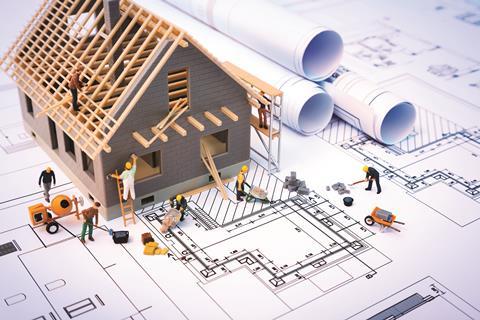Two policy changes stood out in long-awaited planning white paper ‘Planning for the future’ – the government’s blueprint for replacing England’s outdated, post-war planning rulebook with a radically new system.

One really big departure from the existing system is that under the new regime, the government will dictate how many homes are built in each area. A new algorithm will decide where homes are built.
But arguably, the most significant change, and a step towards a zonal planning system, is the plan for local authorities to divide all sites into protected, renewal or growth categories. These are welcome changes. To speed up the glacial pace of decision making, a major overhaul is needed.
But to increase housebuilders’ productivity, the government has to go further by encouraging investors, developers and local authorities to embrace innovation and diversify the supply of new housing.
Factory-built homes provide the chance for the government to double down on its innovation agenda and significantly speed up delivery. Savills estimates that traditional construction methods account for more than 90% of UK housebuilding. The other 10% of homes use modern methods of construction (MMC) and Savills estimates that this will rise to nearly 20% in the next 10 years.
But imagine if the industry exceeded that 20% to reach levels seen in Scandinavian countries such as Sweden, where around 45% of all new homes utilise MMC. The benefits would be far-reaching.
More homes could be brought to market quicker, as manufacturing offsite allows housing to be delivered twice as fast as by traditional methods; huge carbon savings could be achieved thanks to the efficiency of production line manufacturing; and disruption to local communities, usually a sticking point for planning applications, could be minimised.
The pace of housing delivery using MMC and the benefits it brings cannot be underestimated. Covid-19 has laid bare the huge regional inequalities in the UK, with poorer regions experiencing the highest levels of coronavirus infections, as cramped living quarters make the spread of infection much easier.

We have partnered with a number of housing associations to address this problem and deliver affordable housing for the communities that need it the most. In June, we announced a £23m partnership with Stonewater to develop a 120-home, 100% affordable housing scheme in Herefordshire, while in August, we announced that we will deliver 25 factory-built affordable homes in Warwickshire for Orbit Homes.
To continue on this positive trajectory, a more favourable policy environment must be shaped to support the rise of MMC and diversify the supply of new housing.
First, the government must double down on its commitment to making the UK a world leader in modular technology in the next decade by increasing the amount of funding available to SMEs. Launching a modular housebuilder is very capital intensive. Unlike traditional housebuilders, who can deploy capital at different stages of a build cycle, many of the costs are upfront – such as manufacturing facilities, templates for homes, machinery and materials. The government can help SMEs weather the storm of the first few years of operation and realise economies of scale.
Second, ministers must bring land forward to accelerate the pace of housing procurement and delivery. Housing associations also have a key role to play in using their funds and land, and should be encouraged to collaborate closely with Homes England and other stakeholders.
If UK housebuilding is to emerge from the Covid-19 crisis a better, more efficient industry, diversifying the supply of new housing is going to be just as important as the government’s planning reforms.
Dave Sheridan is executive chairman of ilke Homes and will be speaking at RESI 2020
![]()
If you want to benefit from more residential property business insights, join us for the RESI Convention. Find out more about how you can attend online or in person on the new dates of 10-11 November 2020:




























![Lot 2 - Allsop [May 2024]](https://d2bq2usf2vwncx.cloudfront.net/Pictures/380x253/4/8/5/1885485_lot2allsopmay2024_328328_crop.jpg)



No comments yet